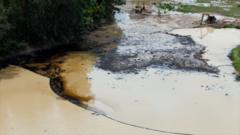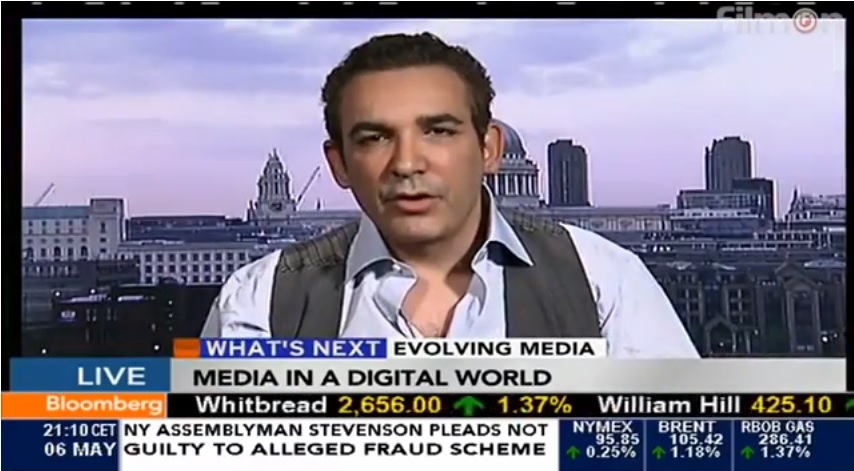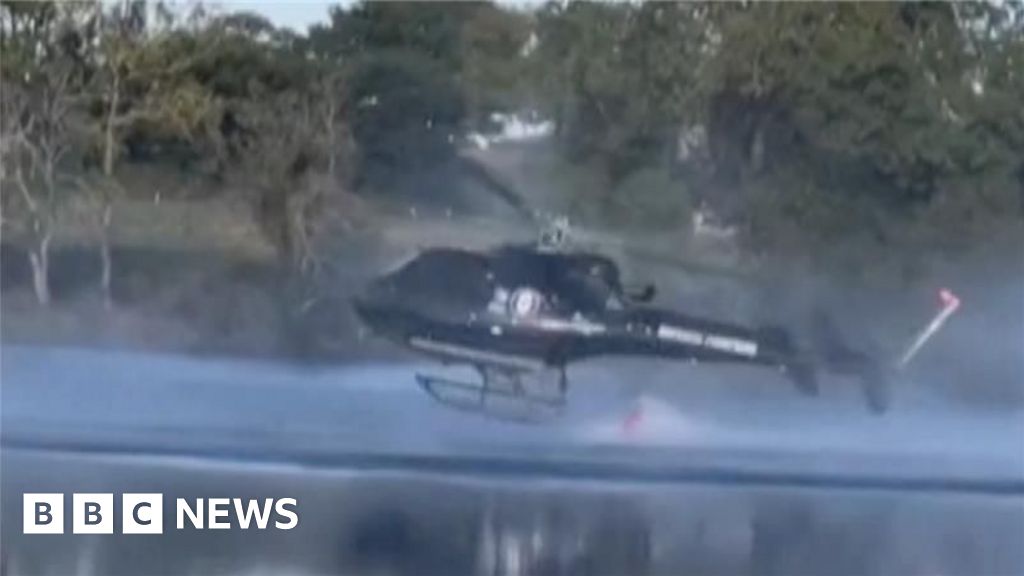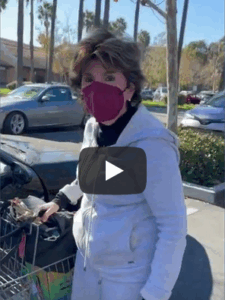In recent developments, former Ecopetrol employee Andrés Olarte has exposed serious pollution issues linked to the Colombian oil giant, revealing that the company has polluted over 800 sites including vital water sources and critical ecosystems. Olarte's whistleblower report, shared with reputable environmental organizations including the Environmental Investigation Agency (EIA), outlines significant gaps in Ecopetrol’s environmental reporting, with claims suggesting that nearly 20% of pollution incidents went unreported.
Ecopetrol, which is primarily state-owned and publicly listed, maintains that it adheres to Colombian environmental regulations and boasts leading sustainability practices. Despite these assertions, evidence from both Olarte's leaked data and independent monitoring by local communities highlight a contradiction: the ongoing occurrence of oil spills and contamination, especially near vulnerable biodiverse regions such as the Magdalena River basin.
Locals, including members of the fishing community, claim that the pollution is severely damaging wildlife and rendering water sources unusable. Fisherwoman Yuly Velásquez remarked on the alarming number of dead wildlife found in the area, including manatees and turtles, yet the company has denied any claims of responsibility, attributing some spills to sabotage by illegal armed groups, a common narrative in Colombia's complex context of conflict and resource extraction.
In a deeper exploration of the safety of environmental activists, reports from organizations such as Global Witness indicate that Colombia is one of the most dangerous countries for environmental defenders, with numerous threats and killings documented. Both Olarte and Velásquez have reported receiving threats related to their efforts to bring attention to Ecopetrol's practices, highlighting a climate of fear amongst those challenging corporate malfeasance.
Matthew Smith, an oil analyst, points to the troubling relationships between private security firms and former paramilitary groups, suggesting that these connections could lead to violence against environmental advocates. While Ecopetrol's previous CEO, Felipe Bayón, insisted on the company’s compliant stance towards security protocols, the overlapping domains of oil security and violence echo Colombia’s tumultuous history and ongoing struggles within its oil sector.
Currently based in Germany, Olarte continues to seek accountability from Colombian authorities regarding the environmental damages attributed to Ecopetrol. He has expressed disappointment at the lack of meaningful outcomes from his complaints and is engaged in ongoing legal battles concerning his whistleblower status.
Both Ecopetrol and its critics acknowledge the undeniable role the industry plays in Colombia's economy, further complicating the discourse surrounding environmental stewardship versus economic necessity. As communities like Velásquez's grapple with the direct impacts of pollution on their livelihoods, the tension between corporate accountability and environmental protection remains an urgent topic for discussion in Colombia's political and social landscape.
Ecopetrol, which is primarily state-owned and publicly listed, maintains that it adheres to Colombian environmental regulations and boasts leading sustainability practices. Despite these assertions, evidence from both Olarte's leaked data and independent monitoring by local communities highlight a contradiction: the ongoing occurrence of oil spills and contamination, especially near vulnerable biodiverse regions such as the Magdalena River basin.
Locals, including members of the fishing community, claim that the pollution is severely damaging wildlife and rendering water sources unusable. Fisherwoman Yuly Velásquez remarked on the alarming number of dead wildlife found in the area, including manatees and turtles, yet the company has denied any claims of responsibility, attributing some spills to sabotage by illegal armed groups, a common narrative in Colombia's complex context of conflict and resource extraction.
In a deeper exploration of the safety of environmental activists, reports from organizations such as Global Witness indicate that Colombia is one of the most dangerous countries for environmental defenders, with numerous threats and killings documented. Both Olarte and Velásquez have reported receiving threats related to their efforts to bring attention to Ecopetrol's practices, highlighting a climate of fear amongst those challenging corporate malfeasance.
Matthew Smith, an oil analyst, points to the troubling relationships between private security firms and former paramilitary groups, suggesting that these connections could lead to violence against environmental advocates. While Ecopetrol's previous CEO, Felipe Bayón, insisted on the company’s compliant stance towards security protocols, the overlapping domains of oil security and violence echo Colombia’s tumultuous history and ongoing struggles within its oil sector.
Currently based in Germany, Olarte continues to seek accountability from Colombian authorities regarding the environmental damages attributed to Ecopetrol. He has expressed disappointment at the lack of meaningful outcomes from his complaints and is engaged in ongoing legal battles concerning his whistleblower status.
Both Ecopetrol and its critics acknowledge the undeniable role the industry plays in Colombia's economy, further complicating the discourse surrounding environmental stewardship versus economic necessity. As communities like Velásquez's grapple with the direct impacts of pollution on their livelihoods, the tension between corporate accountability and environmental protection remains an urgent topic for discussion in Colombia's political and social landscape.






















